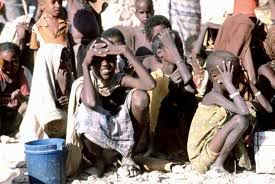Cross posted from The Stars Hollow Gazette
Three days of mourning were declared in the aftermath of the attack on the Westgate Mall in Nairobi, Kenya that has left at least 72 dead including six soldiers and five of the attackers.
The attack was perpetrated by the militant youth group, al-Shabaab, associated with Islamic extremists in Somalia and is regarde by the US and other nations as a terrorist group. The groups is targeting Kenya for providing troop that supported the Somali Transitional Federal Government.
While al-Shabab has turned into a largely violent organization, for a time it was run as a counter force to criminal gangs operating in Mogadishu, Somalia’s capital. Al-Shabab was once the military wing of the deposed Islamic Court Union (ICU), which controlled much of central and southern Somalia in late 2006.
But Al-Shabab’s fighters were eventually forced out of Somalia by Ethiopian troops in support of the largely powerless U.N.-backed interim government.
Though the group has carried out attacks in other countries, it has mostly focused on attacks within Somalia, using suicide bombs to kill dozens over the years. Its members have also assassinated international aid workers and others perceived to be friendly to Somalia’s transitional government.
Author and national security correspondent for The Nation, Jeremy Scahill joined Democracy Now!‘s Amy Goodman and Nareem Shaihk to discuss how the US meddling in the region is tied to the “rampage” at the Nairobi mall.
Transcript can be read here
Scahill says the Bush administration’s decision to back Ethiopia’s overthrow of Somalia’s Islamic Courts Union in 2006 helped fuel al-Shabab’s growth into the dominant militant group that it is today: “Al-Shabab was largely a non-player in Somalia and al-Qaeda had almost no presence there. The U.S., by backing [Somali] warlords and overthrowing the Islamic Courts Union, made the very force they claimed to be trying to fight.”
Jeremy also appeared on MSNBC’s All In with Chris Hayes further explaining the history of the region and al-Shabaab.
>>> at this hour, kenyan security forces claim to be in control of the west gate premier shopping mall in nairobi, kenya, the site of one of the most horrifying terror attacks in recent memory. kenyan interior ministry saying “our forces are combing the mall floor by floor looking for anyone left behind. we believe all hostages have been released.” this hour, the kenyan government hasn’t yet made a full accounting. midday saturday, nairobi, kenya, a mall that could easily be mistaken for any major mall in the u.s. or anywhere in the world, fell under attack by 10 to 15 gunmen, reportedly from the islamist al shabaab militia. one eyewitness was an american who had recently moved to nairobi from north carolina.
>> you could hear while we were back there them methodically kind of going from store to store, talking to people, asking questions, shooting, screams, and then it would stop for a while. then they would go to another store.
>> another eyewitness, a software engineer who was in the parking lot with his two daughters said they were throwing grenades like maize to chickens. he and his daughter survived. at last count, at least 62 people have died in the attack, mostly kenyans along with foreigners from britain, france, australia, canada and india. at one point, terrorists started a fire in the mall, which according to security forces, was meant as a diversion. a reported 175 people were wounded in a siege that entered its third day today. at least three assailants have been killed by security forces with at least ten suspects arrested. the attackers also took hostages as the standoff proceeded.
>> we have done search of the building and we can confirm that the hostages, almost all of them have been evacuated.
>> the kenyan foreign minister has since told al jazeera the mall attack was the work of al qaeda, not al shabaab. more on that in a second. president kenyatta said one of his nephews was in the mall and killed in the attack. the chief of the kenyan defense forces said the terrorists are clearly a multinational collection from all over the world. the fbi is looking into reports that americans were among the attackers. “the new york times” photographer tyler hicks happened to be nearby the mall when the siege began. he entered the mall along with police officers and captured these stunning images.
>> once i got inside the mall, i could see how tense everyone was, the army and police, how carefully they were moving. they were dashing across open areas, taking extreme care with their cover. it seemed kind of like anywhere you looked there would be another body. people were still hiding in shops. and as the police and the army were moving through, they would either discover people or they would sense that help had arrived and then they would flood out. so, you get kind of moments of silence and then other moments of big streams of people who they were trying to get out as quickly as possible. it really seemed like everywhere we went, more people came out of the woodwork. at one sense it seemed very abandoned. for example, the music that plays in the shopping mall, the typical kind of music, was still playing on the intercom. so, it was kind of this eerie silence with this music interrupted occasionally by gunfire. terrified people were crying, screaming, just running for their lives, really. i never thought that i would encounter this kind of tragedy in a public place like this, where completely innocent civilians were just gunned down and murdered. it’s not like a conventional war, where you expect combatants to get hurt or expect there to be collateral damage in those kinds of situations. this is just a suicide mission and murder.
>> joining me now is jeremy ask a hill, my colleague at “the nation” magazine, where he’s national security correspondent. he is also author of “dirty wars,” producer and writing of the film by the same name. jerry, you were in somalia. there’s footage of you being on a rooftop with incoming fire from al shabaab fighters, basically. what do you make of the conflicting reports about whether al shabaab or al qaeda did it, and who is al shabaab and how are they different from al qaeda?
>> right, well, first of all, al shabaab was a group of relative nobodies in 2006 during the bush administration. they were a sort of outlier in a group called the islamic courts union, which was largely made up of, almost exclusively made up of somali actors. and these actors meaning players on the scene in somalia. and al shabaab was the sort of group among those that sort of had the most allegiance to al qaeda or affinity for osama bin laden’s message, but they had no political sway whatsoever domestically within somalia. the u.s. partnered with the ethiopian military in 2006- 2007 and staged an invasion of somalia, and they dismantled this government of the islamic courts union, which was the only government that brought stability in somalia since the blackhawk down episode. so, what happened as a result of that is that the shabab became the vanguard of what was viewed as a movement to fight off a crusading force backed by the united states. so, al shabaab started to get street credibility within somalia because they were the only ones fighting. the rest of the networks had been disrupted, co-yopted, killed or imprisoned by the americans or ethiopians. so, what happened at the end of the day is that al qaeda was able to get a foothold in somalia and it had never been able to before. bin laden desperately wanted to get into somalia and somalis rejected him. the u.s. invasion with ethiopia opened the door and al shabaab has gotten more militant as the years have gone on.
>> and they clearly seem to have an agenda if, in fact, this is somali al shabaab fighters behind this. why would they attack a kenyan mall?
>> well, there’s a long history of al qaeda in east africa and eventually al shabaab staging attacks in kenya and elsewhere in africa.
>> of course the embassy bombings.
>> yes, in ’98 in tanzania and kenya, but there was also a 2002 attempt to shoot down israeli aircraft in mombasa. then you had the bombing at the world cup in 2010 in uganda, an american citizen was killed in that as well as a number of ugandans. and i think that, you know, if you look at the past two years, kenya has been deeply involved with somali politics, funding warlords. i traveled with a kenyan-backed warlord who had brand new military equipment given to him in the summer of 2011, and then kenya staged an invasion of parts of southern somalia. and i think al shabaab has seized on this idea that kenya is a puppet or a proxy for the u.s., and that’s really the message that they’ve propagandized.
>> what does it say about the state of al qaeda or global ji jihadis in 2013 that this attack happened, that it’s coming from possibly somalia? it seems to me like it’s the situation which we smash one or disrupt one network and they seem to pop up somewhere else.
>> right. something interesting is that when i was last in somalia in the summer of 2011, the head of al qaeda in east africa was killed in mogadishu, fazul mohammed. and among the documents seized, and i reported on this in my book, were letters from fazul to ayman al zawahiri, number two in al qaeda. and what fazul said is shabaab is making a mistake trying to hold territory in somalia and you need to go back to managing savagery. there is a famous al qaeda paper called “the management of savagery,” and data is make it impossible for anyone else to govern. make people feel fear and that the government cannot protect them.
>> chaos.
>> and i think that’s part of what we’re seeing. but there’s no one al shabaab right now, which is why the kenyans —
>> being splintered, and it’s ann clear who is exactly krogh the organization. journalist jerry scahill,



